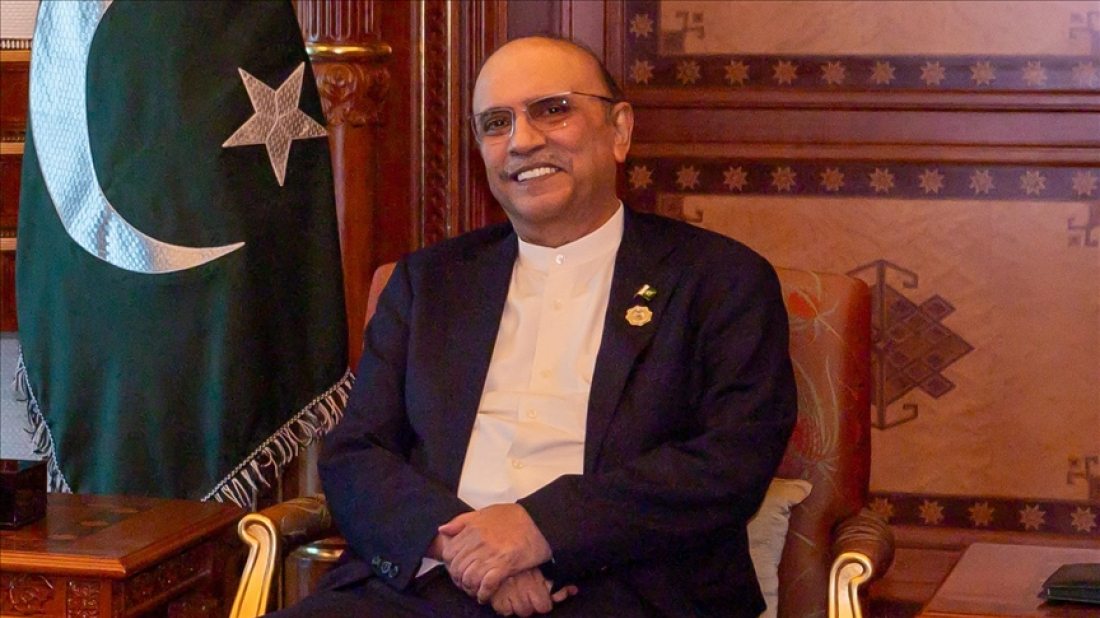Trump says additional talks with Iran expected on Friday
Tensions between the U.S. and Iran are escalating, with Washington ordering a significant military build-up in the region and multiple countries evacu...

At the invitation of Chinese President Xi Jinping, Pakistan’s President Asif Ali Zardari will undertake a four-day state visit to China from February 4 to 8, 2025. The visit aims to strengthen the longstanding diplomatic and economic ties between the two nations, often described as “ironclad” allies.
President Zardari is expected to meet with Chinese President Xi Jinping, Premier Li Qiang, and other top officials to discuss key areas of cooperation. The visit holds strategic significance as both countries seek to enhance their partnership in trade, defense, and infrastructure development.
A major highlight of the visit is the China-Pakistan Economic Corridor (CPEC), a multi-billion-dollar initiative under China’s Belt and Road framework. Both sides are likely to discuss new projects, investment opportunities, and measures to accelerate the completion of ongoing developments.
The visit's agenda includes expanding economic collaboration, particularly in trade and investment, with a strong focus on energy, infrastructure, and industrial development under CPEC. Defense cooperation will also be a key topic, with discussions on strengthening military ties, joint security initiatives, and efforts to promote regional peace.
Pakistan and China have shared a close diplomatic bond since 1951, evolving into a strategic partnership over decades. China has been one of Pakistan’s most significant allies, providing crucial support in defense, technology, and economic sectors. The visit comes at a time when regional dynamics are shifting, with both nations seeking to navigate geopolitical challenges while reinforcing their mutual interests.
Experts believe this visit will reaffirm China’s commitment to Pakistan as a key regional ally. For Pakistan, deeper economic ties with China offer much-needed investment and support for development projects. The two leaders are expected to discuss regional security issues, including Afghanistan and Indo-Pacific developments.
Tensions between the U.S. and Iran are escalating, with Washington ordering a significant military build-up in the region and multiple countries evacuating diplomatic staff amid fears of further instability.
The death toll from heavy rains and flooding in Brazil’s Minas Gerais state has risen to 46, authorities said, with 21 people still reported missing. The storms triggered landslides and widespread flooding, displacing thousands across Juiz de Fora and Uba.
The situation in Cuba was heating up and called for restraint following a deadly incident involving a Florida-registered speedboat off the coast of the Caribbean island, the Kremlin said on Thursday (26 February).
Pakistani air strikes hit a weapons depot on the western outskirts of Kabul overnight, triggering hours of secondary explosions that rattled homes across the Afghan capital and left residents fearing further violence.
Russian President Vladimir Putin’s special envoy, Kirill Dmitriev, arrived in Geneva and may hold talks with U.S. officials, according to the RIA news agency.
Abdullah Öcalan, the jailed leader of the outlawed Kurdistan Workers’ Party (PKK), issued a statement on Friday (27 February) calling on Ankara to adopt legislation aimed at promoting political inclusion.
Pakistani air strikes hit a weapons depot on the western outskirts of Kabul overnight, triggering hours of secondary explosions that rattled homes across the Afghan capital and left residents fearing further violence.
Pakistan’s declaration of an “open war” with Afghanistan must be understood in the context of months of escalating violence, regional analysts have said, describing the latest developments as a significant shift in the nature of the conflict.
Israeli strikes killed five people in Gaza on Thursday (26 February), according to health officials in the territory. The Israeli military said separately that it had killed a militant who posed an imminent threat to its forces in southern Gaza.
Iran’s Foreign Minister Abbas Araghchi on Friday urged Afghanistan and Pakistan to resolve their differences through dialogue, offering Tehran’s assistance to facilitate understanding between its eastern neighbours.
You can download the AnewZ application from Play Store and the App Store.

What is your opinion on this topic?
Leave the first comment